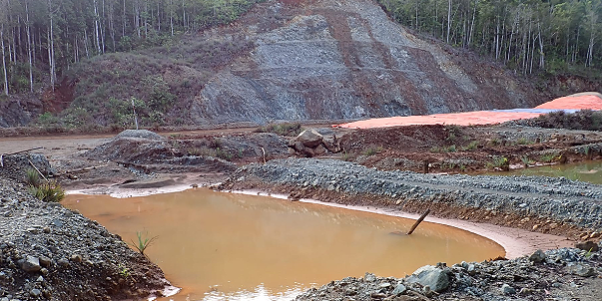IN a move to strengthen the timely payment of revenue from the mining sector, the Isabel Provincial Government has produced a policy paper which will stop short-circuiting the process of conducting mining activities in Isabel.
This follows the case of Far East Resources Company Ltd, which San Jorge landowners have accused of short-circuiting the process by allegedly conducting actual mining using its prospecting licence.
The company has rejected the accusations, claiming it has applied for a Mining Licence (ML) and is upholding all the rules and regulations in its mining activities on the San Jorge tenement.
Unpaid business licence fees remain a key concern for Premier Lawrence Hayward’s new government.
Sources told Solomon Star that Premier Hayward’s government was owed some $21 million in business licence fees. One mining company for example, owes the Isabel provincial government some $13 million.
The claim was rejected by one other mining company, saying the delay in payment was the fault of the last Isabel provincial government.
it was the provincial government that was responsible for the delay in the payment could be due to the fact new business licence fees has not been gazetted.
The Isabel Province Business Licence (Amendment) Ordinance 2023 was signed on 23rd May 2023.
Schedule 5 of the Amendment prescribed the Mining Business Fee at $2 million. It was signed by the Isabel Provincial Government on 23rd May 2023. But eighteen months on, the amendment has not been gazetted to make it into law.
The Amendment was signed by then Premier Roda Sikilabu, the then Speaker, now the Premier, Lawrence Hayward and the Provincial Assembly Clerk, Kenneth Havilegu. It is unclear where the hold-up is.
Irrespective of this, the new Isabel Provincial government has moved to address the problem. It has produced what it calls a Mining Development Agreement [MDA], which mining companies will be required to sign, the sources said.
The Agreement will stipulate a number of development initiatives in the Province to which mining companies must commit resources. These include, but not limited to, permanent infrastructures such as roads, wharves, health services and so on.
Mining companies must also address food security, according to the sources.
“Unless there is real commitment on the part of investors, they will not be allowed to conduct business activities in Isabel Province. They must know the Provincial government has the last say in these matters, the sources said.
“The grant of a prospecting licence or mining lease to investors will not make a difference. By law, the provincial government still has the last say,” the sources told Solomon Star yesterday.
By law, provincial governments are responsible for collecting business licence fees, whose cost is determined by the sector the business is conducted in. It is unclear whether the Isabel Provincial Executive has cleared the document.
Meanwhile Solomon Star has established why the Jejevo Tenement attracts so much attention from foreign investors.
The Jejevo Tenement is located in Varei land – Isabel Province’s remaining virgin forest – which covers some 23, 000-plus hectares. Comparably, the nickel deposit is found only in a smaller portion. The rest is virgin forest with a large exportable timber species.
Loggers masquerading as miners are fighting to get a slice of the spoils either in the rich nickel deposit there, the exportable timber species exotic to Ysabel Province found only there, or both.
And who would blame them. There are tons of money to be made.
Varei land has an estimated exportable timber species of more than 600, 000 cubic metres, according to a recent inventory reportedly undertaken by the Ministry of Forests and Research.
Some of these species are hard wood which are priceless on the international market.
By Alfred Sasako
Photo caption: One of the mining sites in Isabel. Photo supplied.









